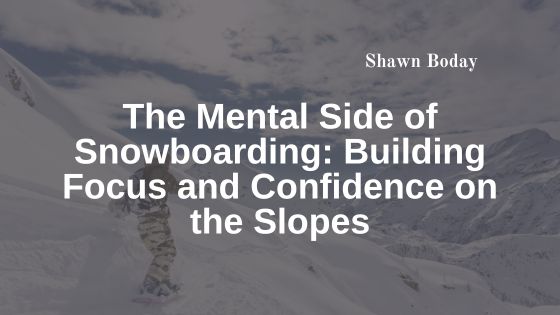Snowboarding is as much a mental challenge as it is a physical one. While strength, balance, and technique are essential, the ability to stay calm, focused, and confident can be the difference between progress and plateau. Whether you are dropping into your first black diamond or learning a new trick in the park, your mindset plays a powerful role in how you ride. Building mental resilience is key to pushing boundaries, staying safe, and truly enjoying your time on the mountain.
Understanding Fear and Managing It
Fear is natural in snowboarding. The speed, the terrain, and the unknown can all trigger anxiety—even for experienced riders. The goal is not to eliminate fear but to manage it. Fear keeps you alert and helps you respect your environment, but when it takes over, it can restrict your movement and drain your confidence.
One way to manage fear is to break goals into smaller, achievable steps. Instead of attempting a steep run all at once, build up to it by practicing on moderate terrain. Visualize your movements and focus on what you can control—your body position, breathing, and line of descent.
The Power of Visualization
Visualization is a powerful tool in snowboarding. Before you ride, close your eyes and mentally go through the motions. Picture yourself making smooth turns, landing a jump, or flowing through the trees. This kind of mental rehearsal helps your brain and muscles prepare for the task, even before you physically attempt it.
Visualization can also be used to calm nerves and improve performance. The more you practice visualizing success, the more natural confidence will become.
Building Focus Through Presence
Snowboarding requires complete focus. You are constantly reading the terrain, adjusting your stance, and reacting to changing snow conditions. Distractions can lead to mistakes, so staying mentally present is key.
Use your breath as a tool to bring yourself into the moment. Take a deep breath before you start a run to center your mind. As you ride, focus on the rhythm of your turns or the feeling of the board beneath your feet. This type of mindfulness not only improves your technique but also helps you find a flow state where movement feels effortless.
Confidence Comes from Preparation
Confidence is built, not born. The more time you spend practicing the fundamentals, the more prepared you will feel in challenging situations. If you struggle with a certain type of terrain or trick, work on the building blocks that support it. Strength training, balance exercises, and consistent practice will give you the physical foundation to trust your body.
Celebrate small wins and track your progress. Confidence grows every time you step outside your comfort zone and succeed, even in small ways.
Final Thoughts
Snowboarding is a mental game. Building focus and confidence requires patience, self-awareness, and a commitment to growth. By learning to manage fear, stay present, and visualize success, you can improve not only your performance but also your enjoyment of the sport. The mountain challenges you, but it also rewards a strong mindset. Ride with clarity, confidence, and control—and the slopes will feel like home.

